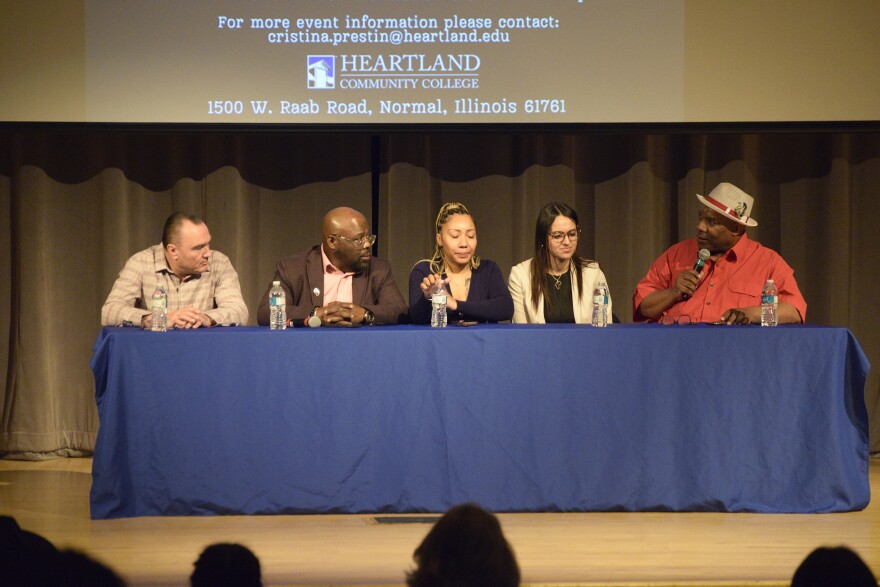Panelists came together Thursday in Normal to share their stories and talk about the psychological impacts of adjusting from being incarcerated to getting back to everyday life.
Heartland Community College and the Illinois Prison Project hosted the event to inform people about the challenges of reintegration. Moderated by Renaldo Hudson, who at one point was on death row himself, the panelists touched on the toll it took on their mental health, as well as recognizing how much is taken for granted when freedom is taken from you.
One of the speakers was Fatima Monteiro, a formerly incarcerated mother. Before being behind bars, she knew little about the legal system. On Thursday she opened up about how hard it was to get hired and find housing after being released.
“For example, I applied to Sephora at the mall… and they were like, ‘We can’t hire you because of your background,’ and I’m like, to sell makeup?” said Monteiro, an ambassador with the Illinois Prison Project.
She said being incarcerated is not something you deal with just while you are there. It is something that affects you daily for the rest of your life.
“It showed me as a child how cruel the world is. It showed me that I was no longer human, I was just a number. That's how I was treated,” said Nejei Webster, who was incarcerated for eight and a half years. She's now a community navigator for the Illinois Prison Project.
Webster said it isn’t just employment you have to worry about, but smaller things such as relearning how to use a can opener.
The panelists touched on everything else that was taken for granted that they did not realize until they were released. Things such as voting, being within the comfort of your own home, privacy, and even being able to take as many ketchup packets you want from a restaurant without anyone questioning you.
“You have to laugh through this stuff because it will make you cry,” said Hudson.
Prison conditioning was also discussed at the panel, and Hudson opened up about the little things that you forget you have free will to do. You don't have to ask to go to the bathroom anymore. You don't have to wear just one color. You can take complete control of your free will.
“I’m still going through how to soften up in a sense, because I come from a violent background in the streets as a kid. Going into the prison system, it got even more in depth,” said panelist Ronnie Carrasquillo, imprisoned for 47 years for killing an off-duty Chicago police officer when he was 18. Carrasquillo and his journey to release was featured in a PBS documentary called In Their Hands. He's also an ambassador for the Illinois Prison Project.
In prison, Carrasquillo said he was constantly on alert, under threat, with his guard up. When bad things would happen to him, he’d tell himself: “That don’t mean nothing.”
“So to come home and hear, ‘What’s your favorite food? Did you like that meal?’ And I go, ‘I don’t care.’ My sister told me to stop saying that. ‘You look like a weirdo. Stop staying that.’”
Thursday's event, From Cell-2-Self: Psychological Transitions in Post-Prison Life, was organized by students enrolled in a Heartland psychology class.


